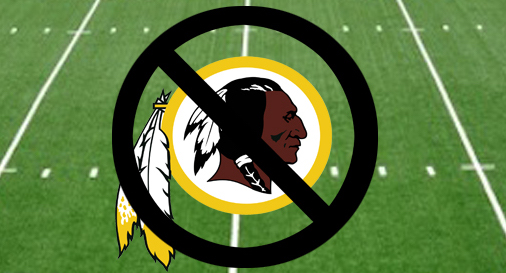
- Details
- By Native News Online Staff
WASHINGTON — The statement by the Washington National Football League (NFL) franchise on Friday, July 3, that the team will undergo a thorough review of the team’s name won the praise of American Indians across social media.
The Cherokee Nation released the following statement from Principal Chief Chuck Hoskin, Jr.:
“I applaud the Washington NFL organization for moving away from any and all depictions of Native Americans as mascots, in chants and any other form of team promotion. The use of ‘Redsk!ns’ as a team name is offensive and wrong, as are many other names and depictions of Native Americans across sports. The time for meaningful dialogue on cultural appropriation of Native Americans in this country is long overdue. Too many Americans are unaware that our tribal nations and proud American Indian people are thriving and remain a vital part of the American tapestry. We applaud those teams who want to reach out and educate him or herself on our tribe and people.”
The National Congress of American Indians (NCAI) said it welcomed the announcement and the process represents an important breakthrough for Indian Country in its longstanding effort to change the name and mascot.
“We are encouraged by the Washington NFL team’s announcement that it will conduct a ‘thorough review’ of the team’s name and mascot. This moment has been 87 years in the making, and we have reached this moment thanks to decades of tireless efforts by tribal leaders, advocates, citizens, and partners to educate America about the origins and meaning of the R-word,” said NCAI President Fawn Sharp. “NCAI looks forward to immediately commencing discussions with the league and team about how they will change the team’s name and mascot, and a prompt timetable for doing so. Indian Country deserves nothing less. The time to change is now.”
On Saturday, the American Indian College Fund released the following statement by its president, Cheryl Crazy Bull (Sicangu Lakota):
Re-Name Mascots to End Harmful Stereotypes
“#TheTimeIsNow for racist sports team names and mascots to be renamed. The American Indian College Fund appreciates its long-time mission supporters, FedEx, Nike, and Walmart. They have chosen to stand alongside indigenous groups across the United States to amplify our voices and to call upon the Washington NFL team to change its name. We are proud to call you our allies.
Indigenous people are a vibrant part of both our nation’s history and modern-day America. Eliminating mascots that reinforce harmful stereotypes sends a powerful message to our children that we value all histories, cultures, and perspectives, helping to foster confidence, growth, and success from kindergarten to college graduation and to build a better future for all. #ChangeTheName. #NotYourMascot.”
While there was praise for the team’s statement, Suzan Harjo (Cheyenne-Arapaho), a recipient of the Presidential Medal of Freedom, who along with others in September 1992 filed a lawsuit the U.S. Patent and Trademark Office revoke the Washington Redsk!ns knows the journey is long to bring about change.
She posted on her Facebook page: “Stay strong! Don’t be dazzled or distracted. Celebrate change when it happens. Greet the announcement of change to come as the important first step.”
More Stories Like This
Native News Weekly (August 25, 2024): D.C. BriefsNavajo Nation Mourns the Passing of Former Vice President Rex Lee Jim
Deb Haaland Earns Endorsement From Communications Workers of America Local 7076
University Soccer Standout Leads by Example
Two Native Americans Named to Democratic Congressional Campaign Committee's“Red to Blue” Program
Help us defend tribal sovereignty.
At Native News Online, our mission is rooted in telling the stories that strengthen sovereignty and uplift Indigenous voices — not just at year’s end, but every single day.
Because of your generosity last year, we were able to keep our reporters on the ground in tribal communities, at national gatherings and in the halls of Congress — covering the issues that matter most to Indian Country: sovereignty, culture, education, health and economic opportunity.
That support sustained us through a tough year in 2025. Now, as we look to the year ahead, we need your help right now to ensure warrior journalism remains strong — reporting that defends tribal sovereignty, amplifies Native truth, and holds power accountable.
 The stakes couldn't be higher. Your support keeps Native voices heard, Native stories told and Native sovereignty defended.
The stakes couldn't be higher. Your support keeps Native voices heard, Native stories told and Native sovereignty defended.
Stand with Warrior Journalism today.
Levi Rickert (Potawatomi), Editor & Publisher

